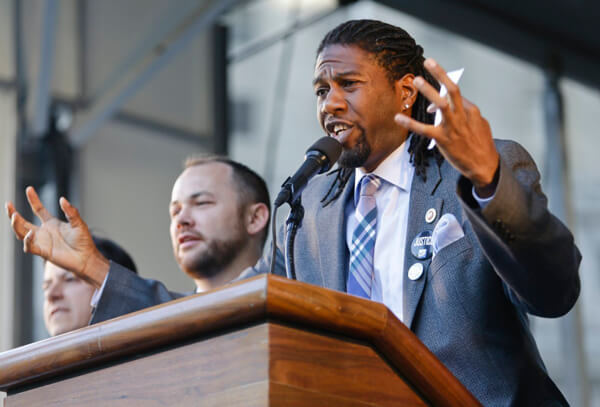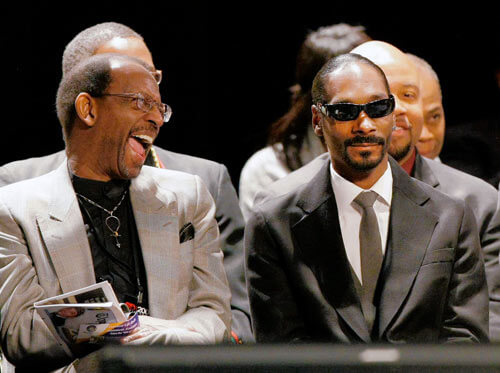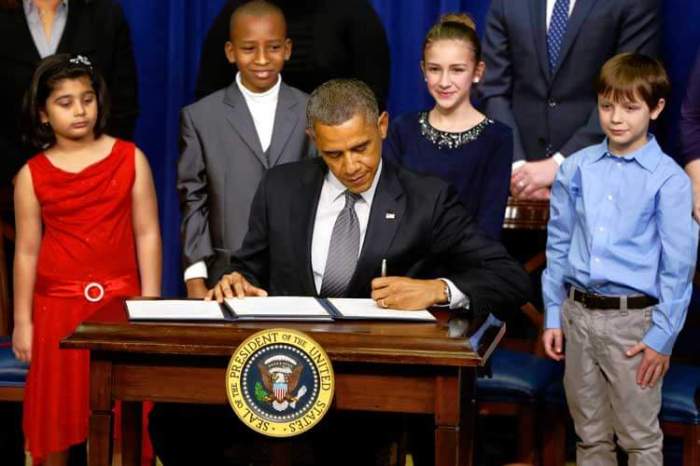The election of 2016, like others in the past, will pit those in the electorate who would have the soul of America represented as steeped in values suggestive of an enlightened 21st century sensitivity and those who would just as soon revert to the norms of a checkered American past. Prior to the Republican party becoming as mired in right-wing ideology as it now is, the two parties’ presidential choices at times didn’t present that stark a distinction. Even after Barry Goldwater was portrayed by Democrats as a reckless right-flank extremist in 1964, there were the likes of Gerald Ford or George H.W. Bush who weren’t perceived as ideologues of the right. Today, given who the GOP nominee figures to be, there’s little doubt about where among the public comes support for the current GOP brand.
So-called wedge issues will assuredly be major determinants of which chunks of the electorate wind up where. Although it’s an issue that’s been seemingly raised only in conversation on the Democratic side, primarily by Hillary Clinton, this country’s sick love affair with firearms will unfailingly be part of the to-and-fro before it’s all over in November. Clinton made a point of broaching the issue in debate with Bernie Sanders because of what, based on Sanders’ record, has been his less than muscular advocacy of gun control. It hasn’t been that much a conversation piece on the GOP side probably because of the two main combatants who dueled the longest, one is committed only to appealing to people’s worst fears and the other evidently believes a message of conservative extremism is one that works. Which makes common-sense regulation of the proliferation of guns in America a non-starter Republican issue.
It’s difficult to consider the gun-violence question without instant recall of the surreal episode that invaded the nation’s consciousness back in December, 2012 — the one that President Obama probably continues to think of as shaping the worst day of his presidency. The senseless slaughter of young innocents, as well as adults, at Connecticut’s Sandy Hook Elementary School, by rights, should have provoked a revolutionary re-positioning of the country’s response to the gun menace. Instead, we were treated to the NRA at its most hideous, still content to present a case for more, not less guns overrunning the landscape and still obstinately opposed to even minimal reforms. Worse was the reported spectacle of one of the Sandy Hook parents who lost his six-year-old son in the massacre, having somehow summoned the strength to testify at a legislative hearing on gun control barely a month after the unspeakable horror, being jeered by gun culture lunatics. And worse still, feckless representatives of the people allowing basic reform steps to die on the vine in Congress when the president and other D.C. do-gooders tried to make a nominal legislative move against the madness.
With that fateful linkage to this country’s unenviable gun-violence record, post-Sandy Hook Connecticut may have come to represent for some of us a haven from those maniacal blasts spewed by the NRA and its surrogates across the nation. Staid Connecticut, we figured, could not but be resolved to a “Never again!” way forward. It thus registers alarmingly when Connecticut looks to be half-stepping on any gun violence-related matter. We realized it might not be as well-ordered a flow as we thought to assume when we were taken aback by such unbelievably brutish behavior toward the father of that six-year-old victim. And we’ve had more of those disappointing jolts of reality, including a few weeks ago when Republican state lawmakers came out swinging against proposed legislation to have firearms surrendered in domestic disturbance situations where a temporary restraining order (TRO) has been issued. The argument that a goodly number of TROs don’t become permanent hardly could justify Connecticut, given the indelible stain of Sandy Hook, not opting to err on the side of caution, as far as moves to avert gun violence.
Years ago, after they spent whopping sums of money on campaigns to get folks in Congress to back off any gun-control talk, the NRA’s intimidation strategy looked pretty effective. Long Island’s Carolyn McCarthy was just about a one-person crusade in Congress in her steady calling out of the NRA and its Gestapo tactics. The major gun-control action by Congress in recent years, the Assault Weapons Ban passed in 1994, was allowed to expire at its 10-year sunset with no really serious move made toward its extension. A similar ban seems now to be a taboo topic around Capitol Hill.
In this battle for America’s soul that is Campaign 2016, let’s hope the anti-gun violence stirrings on the Democratic side portend meaningful legislative action.






















